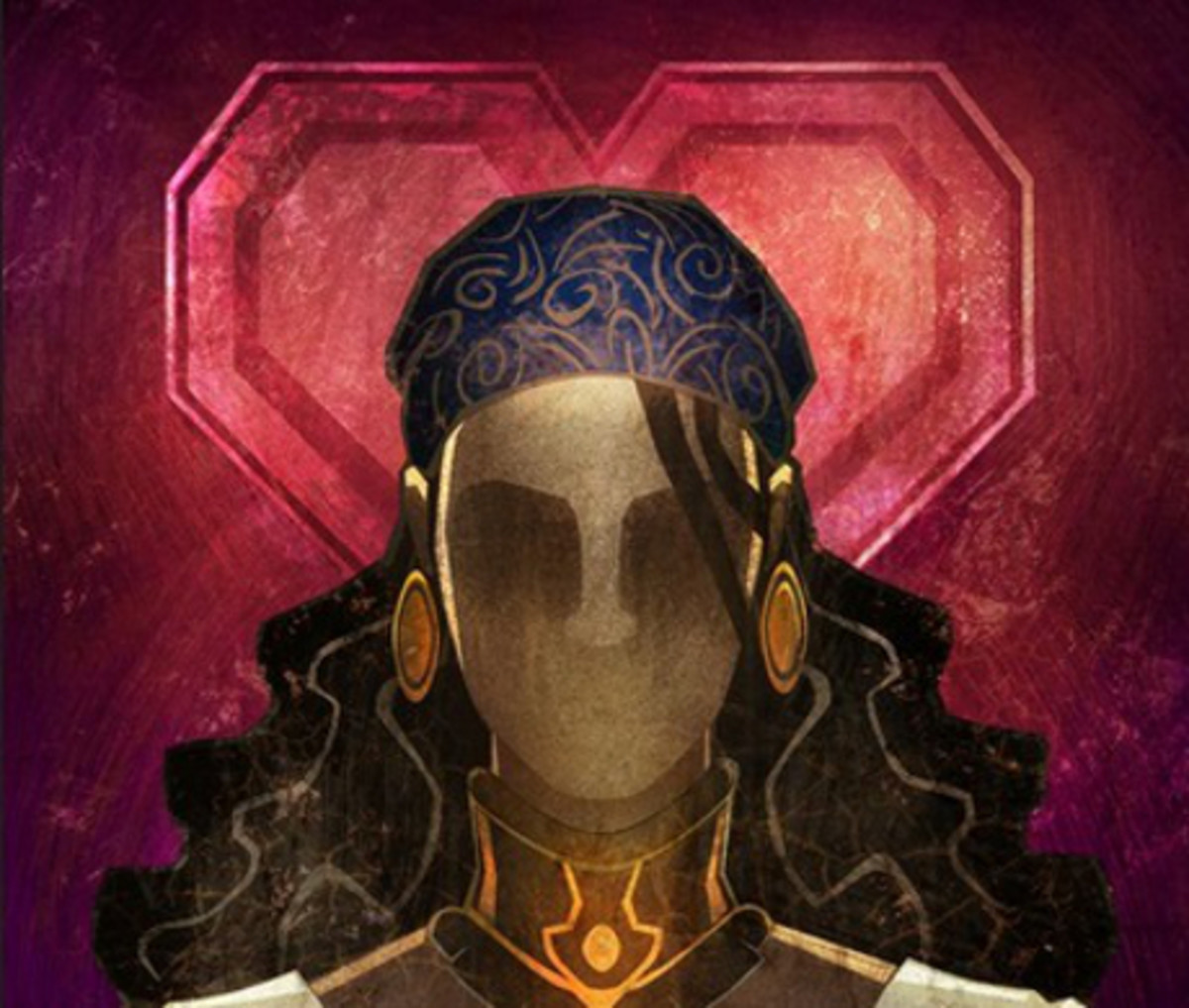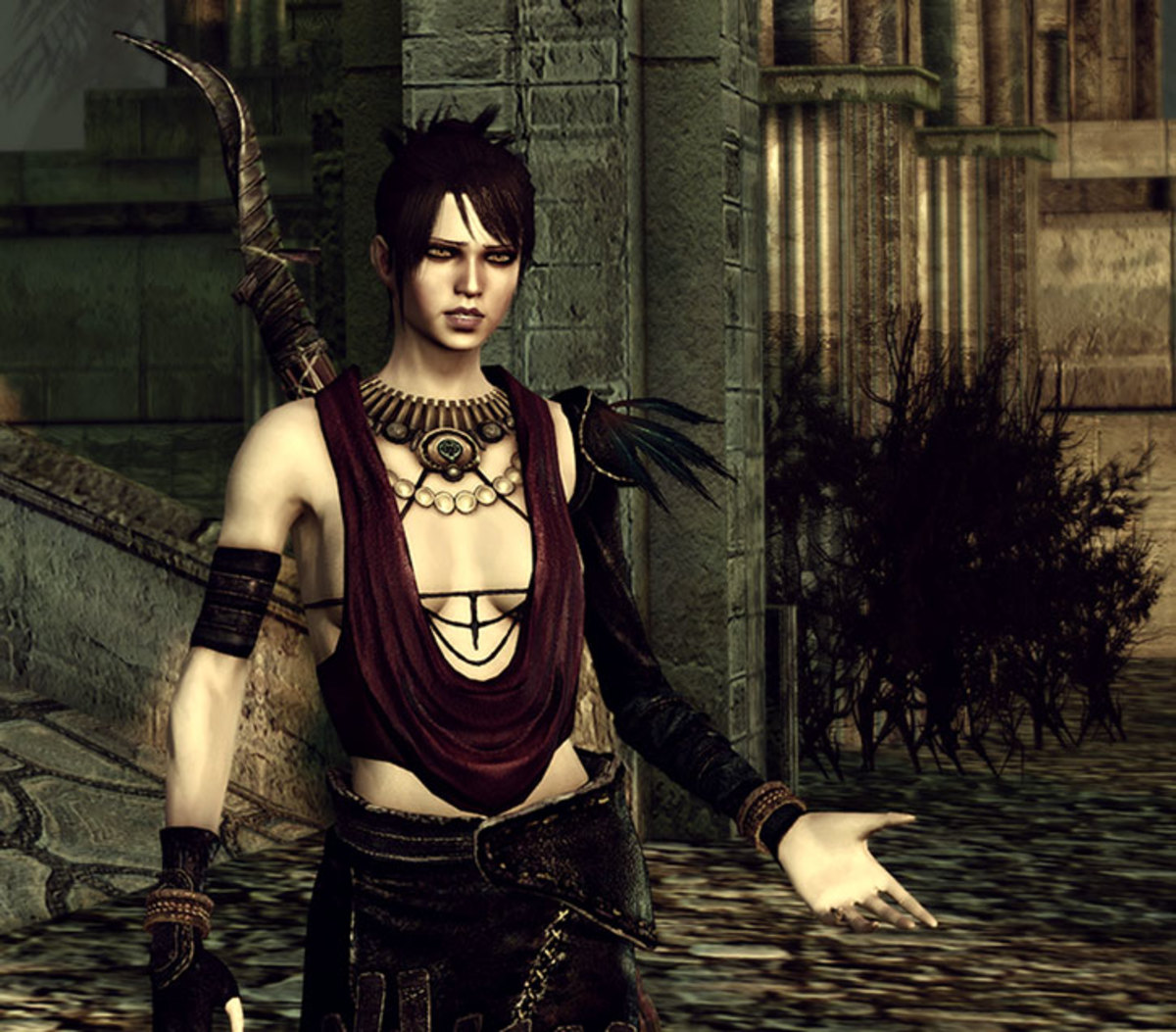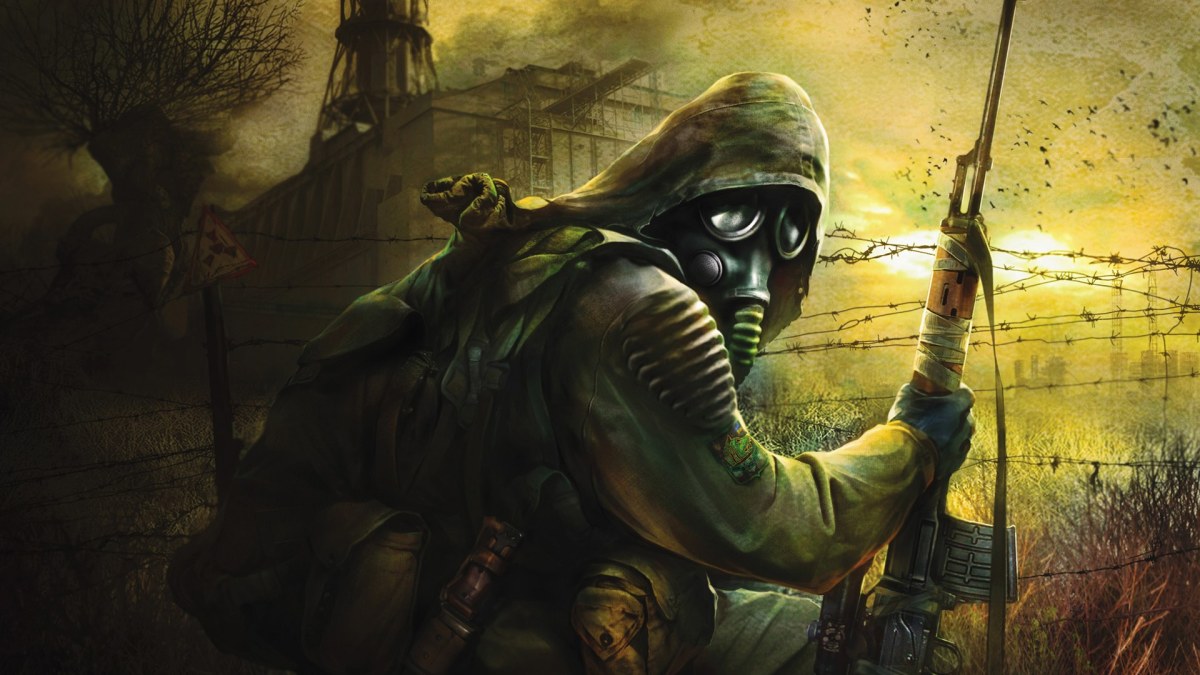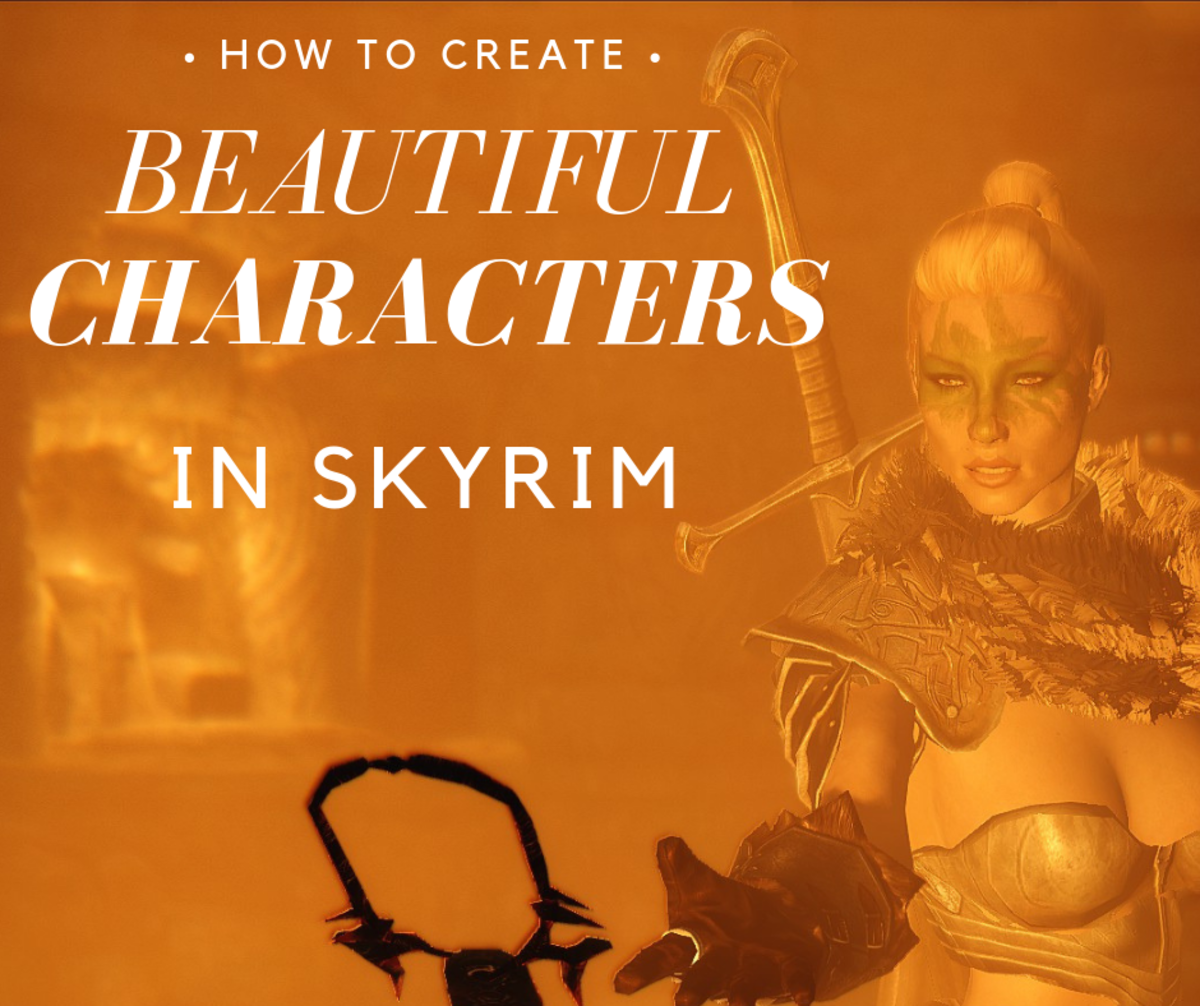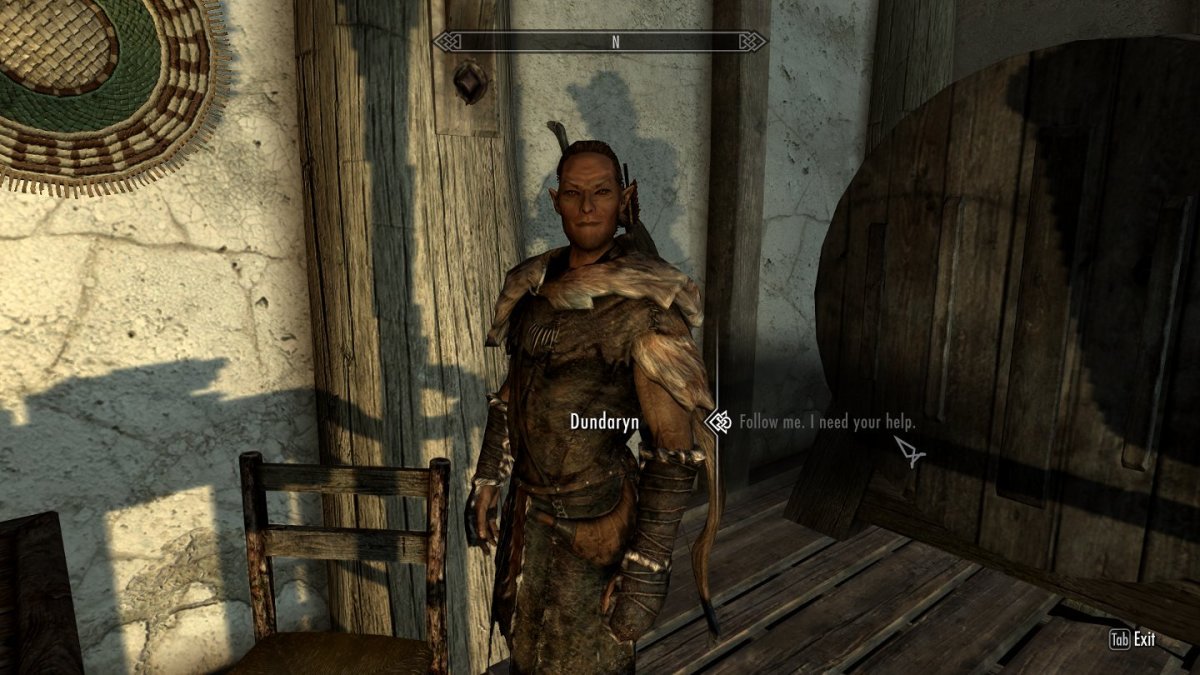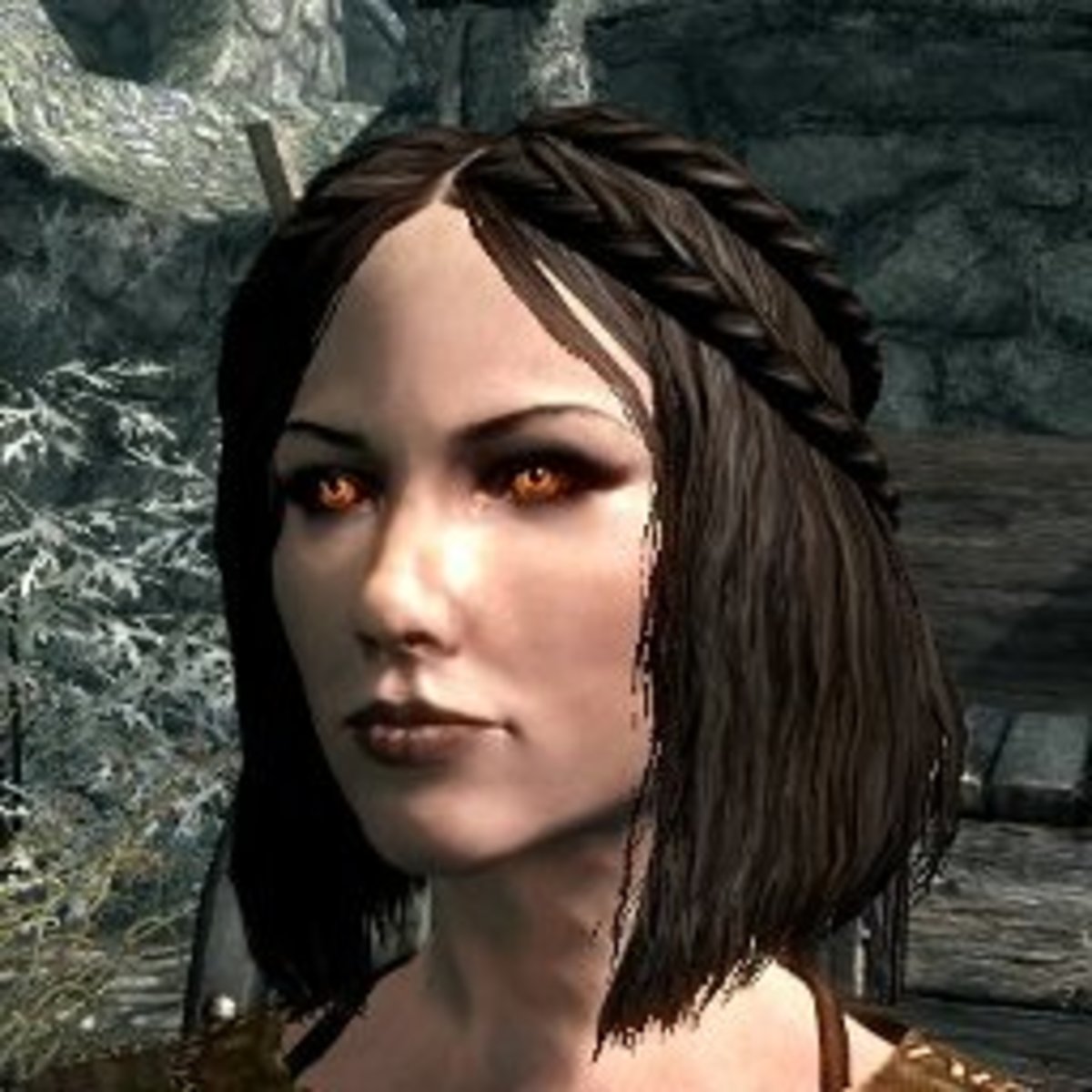- HubPages»
- Games, Toys, and Hobbies»
- Computer & Video Games»
- Roleplaying Video Games
Five Great Roleplaying Video Games
As with so many fans of video games, I have developed my own list of preferences over the years, when it comes to the sort of games I'm most willing to spend my time with. While I have always been willing to give just about any genre of video game a try (with the possible exception of anything racing or sport related), my absolute favourite have always been roleplaying video games.
Considering that I have always been a fan of roleplaying games in general (to the extent that I used to have my own collection of rulebooks and oddly shaped dice), this probably makes perfect sense. The typical RPG focus on creating your own character, and having that character be a driving force in the story being told, has always appealed to me. Whether the story plays out in the form of group of friends gathered around a table, or in a video game, the primary appeal has always been in the game's ability to create a genuine sense of player agency. By this, I mean the degree to which I can feel as though the story being told is actually mine to some extent—even if, as is pretty much always the case with video games, it is all just a carefully constructed illusion.
Any video game that can create that sense of player agency, in which I am allowed to feel as though I am actually driving the story forward, is one that I am almost guaranteed to love. Below, I've put together a list of five games, in particular, which have managed to give me that feeling of player agency. They're all older games, at this point—though, they're definitely worth the time of any RPG fan.

1. The Elder Scrolls V: Skyrim
Honestly, I feel as though just about any of the games in the Elder Scrolls franchise could have been mentioned, here. I have been a fan of the franchise for quite a while, now—going back as far as the second game in the series, Daggerfall. Each game that I have played has managed to provide me with many hours of enjoyment, along with an impressive feeling of freedom to approach the game in a wide variety of ways. Even the MMORPG Elder Scrolls Online has evolved to a point where it has managed to give me some sense of that same freedom (though, of course, not quite to the same extent as the singleplayer games). Skyrim is the one that I will discuss, in detail, simply because it is the one I have the the most recent experience with.
In the rugged and cold land of Skyrim, far to the north, the people find themselves caught in a civil war between Imperial forces, and those natives who support them, and the Stormcloaks, who consider themselves to be the true children of Skyrim. The issue at hand is the White Gold Concordat—a peace treaty which ended a previous war between the Empire and the High Elven Aldmeri Dominion. The White Gold Concordat demanded that the worship of the god Talos be outlawed—which becomes a source of resentment for the Nords of Skyrim, since the legends state that Talos was once a mortal man and, more than that, that he was a Nord. For the people of Skyrim, the White Gold Concordat is an attack on an important aspect of their faith and their culture. As a result, the growing Stormcloak rebellion wants to break away from the Empire and declare Skyrim an independent nation. That, on its own, would be more than enough story for a game. But, in Skyrim, players also have to contend with the return of dragons to the world—and, the ancient prophecy of Alduin the World Eater, whose return is believed to bring about the end of the world.
Or, of course, you could ignore all of that entirely and set out on your own. Focusing your character, instead, on one of a variety of alternate plotlines concerning different factions within the world. Or, simply setting off and exploring. That has always been the main appeal of Elder Scrolls games, for me. Of the handful characters I spent any significant amount of time with in Skyrim, only one has set about bringing an end to the civil war, or dealing with Alduin. The others ignored those plot-lines entirely, in favour of simply exploring the world, or in following my own story lines. The game world is large enough, and developed with enough attention to detail, that it is very possible to simply choose a direction and set out, in order to see what might emerge. On top of that, when you start delving into player-made mods, this level of freedom becomes even more impressive.
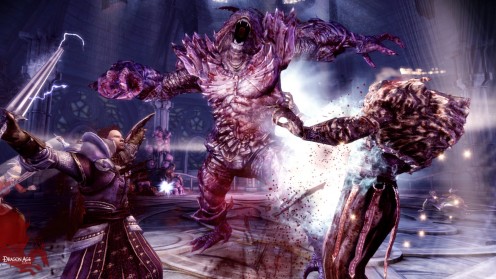
2. Dragon Age: Origins
Developed as something of a throwback to an earlier style of games for Bioware, Dragon Age: Origins was pretty blatantly promoted as something of a spiritual successor to the extremely well regarded Baldur's Gate 2, when it was initially released. Despite that rather overt attempt to play on fan nostalgia, though, it quickly became apparent that Dragon Age: Origins was also set to become an extremely well regarded game, in its own right. Reactions to the later games in the franchise may have been somewhat mixed (personally, I felt that Dragon Age 2 good, if somewhat flawed, while Dragon Age: Inquisition deserves to stand alongside the first), but I would hope that most people can agree that the first game in the franchise was a pretty remarkable achievement.
The game saw you cast as one of the last remaining members of the Grey Wardens in the kingdom of Ferelden. The Grey Wardens were a mysterious order formed to fight back against the Blight—an event which sees the appearance of masses of vile creatures known as Darkspawn, who emerge from their underground lairs to threaten the surface world. As the game begins, it is quickly revealed that a new Blight has just begun, and the Grey Wardens are needed once more. At the height of what should have been the decisive battle against the Darkspawn, though, a last minute betrayal plunges the kingdom of Ferelden into civil war—significantly complicating matters for players, who find themselves saddled with the responsibility of bringing the kingdom back together, so the Blight can be stopped.
This central plot line is an effective enough motivation, but it's fairly conventional. It certainly isn't what made Dragon Age: Origins so memorable. The main gimmick of the game was, of course, in the origins themselves, and in the level of variety that they were able to bring to this central storyline. These origins, which took the form of a handful of different entry points into the game, introduced your character to a different part of the world, and had you interact with a different cast of characters. Each of them was written to eventually lead to the same point, of course—with each eventually leading to your recruitment, either willing or unwilling, into the ancient order of the Grey Wardens, and the continued story of your attempts to fight back against the Blight. Regardless of which origin you choose, the game's story is largely the same—but, each origin also manages to personalise the experience of going through that story in some very interesting ways. Choosing the Human Noble origin, for example, will give you a quest for personal revenge which may actually outshine your attempts to unite the land against the Blight—while the City Elf origin will give you the added incentive of seeing your own home destroyed. Regardless of which you choose, there are enough callbacks to make that initial decision feel worthwhile, and to make each play through of the game feel distinct and memorable.
Honestly, the whole idea of separate origin stories to choose from feels so surprisingly simply that, on reflection, I'm surprised that it hasn't been used more often. Combine that with a cast of fascinating characters to interact with, and some very difficult choices to make along the way, and Dragon Age: Origin became a game that was able to provide a great deal of variety as you weaved your way through what was, essentially, a fairly linear experience.
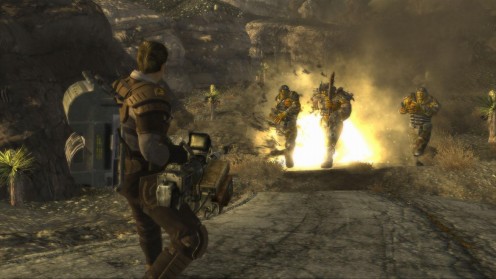
3. Fallout: New Vegas
Developed by Obsidian, Fallout: New Vegas isn't quite a sequel to Bethesda's earlier Fallout 3. It's really more of a side story, shifting focus from the Washington D. C. area of Fallout 3, and to the Mojave Wasteland surrounding Las Vegas. This shift in location actually brought the game closer to the settings of the original Fallout games—which was probably fitting, considering that the team of developers who worked on this game included some of the same developers who worked on those original games. As much as I did enjoy Fallout 3, I have always felt that Fallout: New Vegas was actually a better game in a variety of ways—including, in my own ability to feel immersed in the story and setting.
Arguably, there is not actually much of central storyline to Fallout: New Vegas. There's the need to track down the people who tried to kill you in the game's opening moments, obviously. Though, in the tradition of these sorts of open world games, that something you only need to pursue if you actually want to. There's the need to uncover the mysterious behind the seemingly innocent poker chip that you had been hired to deliver, and which had been stolen from you—though, again, only if you wanted to. There was the escalating tension between the New Californian Republic (NCR), Caesar's Legion, and Mr House—a tension which will inevitably escalate into full-blown conflict. There's the inevitable battle for control of Hoover Dam, which marks the game's official end point. There's also a wide variety of different stories and side plots to involve yourself in, as you make your way through the world.
This probably doesn't sound all that different to the structure of the earlier Fallout 3—and, to be fair, it is obvious that Obsidian did draw a lot of inspiration from Bethesda's own efforts, here. What makes Fallout: New Vegas particularly impressive, though, is that Obsidian were able to take Bethesda's work on their own game, and use that as a starting point to craft something that felt even more open-ended. As you weave your way through the game world, there are so many different ways that you can find yourself drawn into this inevitably three-way conflict that it often doesn't feel as though your following any sort of prewritten story-line. Instead, Fallout: New Vegas manages to give you the freedom to essentially write your own central story, as you play—weaving together the various elements of the game into the overarching story of your own character.
The central conflict may always be present, and the game will always end with the battle for Hoover Dam—but, there are actually many different paths that can lead you to this point. Play long enough, and you will inevitably find yourself supporting one of the game's major faction over the others. But, you are always given the freedom to choose which that will be. Best of all, the closest that the game gets to any sort of last minute twist is one that you can choose to bring about yourself, should you choose to aim for the game's 'Wild Card' ending.
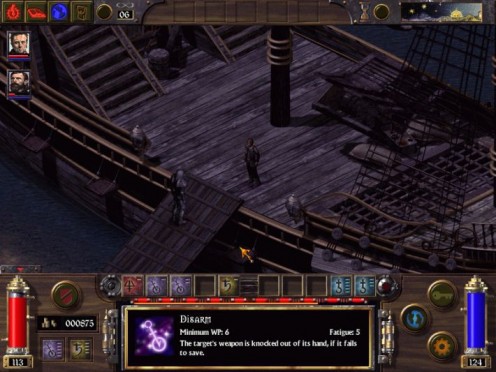
4. Arcanum: Of Steamworks and Magic Obscura
Worth mentioning on any list of great RPGs, if only because of its unique and fascinating blend of traditional fantasy and steampunk, Arcanum was a game which was, unfortunately, somewhat spoiled by its bug ridden state on release. Because of this, the just isn't as fondly remembered as some similar RPGs, released at the time. It certainly isn't as well remembered as it deserves to be.
Taking place in a typical fantasy world, filled with elves and dwarves and magic, Arcanum is immediately able to distinguish itself by pushing that world into what is essentially something of an industrial revolution. Dwarven technology has been taken and adapted by humans, and magic has been pushed to the side. Elves find themselves increasingly out of place in a rapidly changing world—while orcs, meanwhile, find themselves reduced to cheap labour in the various factories that have sprung up around the world.
It is a fascinating world—one that manages to make good use of a very interesting central conflict between technology and magic. In this world, after all, magic and technology are at odd with each other not only in an ideological, but also in a very literal one, as well—as the very presence of one interferes with the working of the other.
It terms of its storytelling and game play, it would probably be fair to say that Arcanum doesn't actually do anything all that different to other RPGs made at around the same time. It has a central story line, but give you some degree of freedom in how you approach it. It also has a cast of interesting characters that you can interact with. Of course, the inclusion of both magic and technology gives you an impressive level of variety in how you could potentially approach the game, and in the sorts of characters you can create when you do so.
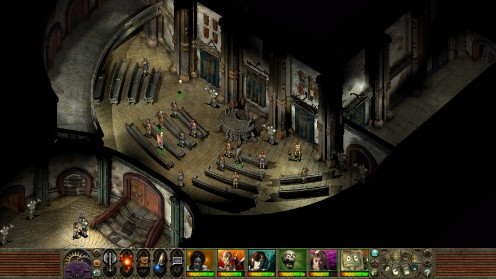
5. Planescape: Torment
Planescape: Torment is a game which takes a different approach to many other RPGs, in a variety of ways. Unlike the other games mentioned on this list, for example, this is a game which embraces a very linear storytelling experience—giving the player what amounts to a single path through the game. Also unlike the others games on this list, Planescape: Torment doesn't give you the option of creating your own unique character—instead casting you in the role of a mysterious figure known only as the Nameless One.
Taking on the role of this strange character, as you wake in a strange crypt to realise that you seem to have lost your memory, your immediate goal is fairly straightforward—to uncover the mystery of your own identity, and learn how you ended up in this position. Of course, to make things more complicated, the world you will explore if full of people who already know you—some of whom seem to have genuine reason to hate and fear you. And, to top it off, you seem to be entirely incapable of truly dying.
Planescape: Torment is, as I've already mentioned, a fairly linear experience. It is one in which you are given a predefined character to play, and presents you with a straightforward story to follow. You might not know exactly what form the game's revelations are going to take, but you can be certain that they're coming. Despite this, though, Planescape: Torment is also one of the most dialogue heavy RPGs I have ever played—with the game going out of its way to provide you with some of the most detailed and immersive interactions you are likely to ever have with an NPC in a video game. It's this level of detailed interaction which is actually the true strength of the game, as the wide variety of options that each dialogue presents you with gives you plenty of opportunity shape your own version of the character as you play. The Nameless One may be a character with a clearly defined background, but you are still given a great deal of freedom to determine who he is now. Also, the game may carry you through what is a fairly linear sequence of encounters and revelations, but the game also gives you plenty of opportunity to actually role play your way through each of them—deciding what each actually means to you, and how you wish to respond, as you work your way through the game.
© 2019 Dallas Matier

